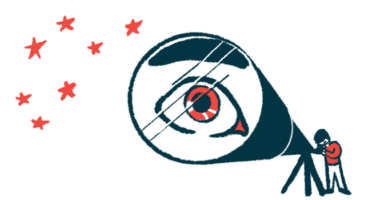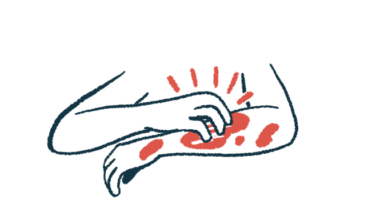Filsuvez Gets Marketing Nod for DEB and JEB in Great Britain
The therapy was also granted orphan drug status by MHRA

Filsuvez (Oleogel-S10) has been approved in Great Britain — England, Scotland and Wales — for treating wounds associated with dystrophic epidermolysis bullosa (DEB) or junctional epidermolysis bullosa (JEB) in patients ages 6 months and older.
In addition to granting marketing authorization, Britain’s Medical Healthcare and Products Regulatory Agency (MHRA) also granted Filsuvez orphan drug designation. This designation is given to treatments for rare diseases — conditions affecting no more than 5 out of every 10,000 people in the U.K. — and it confers certain incentives to the therapy’s developer, Amryt Pharma, including a guarantee of up to 10 years of market exclusivity.
The MHRA’s decision follows a similar approval by the European Commission earlier this year. In the U.S., regulators rejected a similar application, citing a need for more evidence that the therapy is effective.
“The approval of Filsuvez by the MHRA is an important development for patients suffering from this debilitating condition and follows the approval of Filsuvez by the European Commission in June,” Joe Wiley, CEO of Amryt, said in a press release. “We look forward to continuing our discussions with the reimbursement agencies across the UK and European Union to begin delivering Filsuvez to treat patients as soon as possible and to also leverage our European approval to advance regulatory submissions in other jurisdictions such as the Middle East and LATAM [Latin America].”
Filsuvez is a gel designed to be applied to the skin that contains compounds isolated from the bark of birch trees. It contains high amounts of betulin, a compound suggested to promote wound healing and suppress inflammation. The gel was first approved in Europe under the brand name Episalvan as a treatment of partial-thickness skin wounds, wherein the top skin layers have been lost due to burns or skin grafts. Such wounds also occur in EB patients.
Approval of the therapy in Britain and the EU was supported by data from the Phase 3 clinical trial EASE (NCT03068780), which enrolled more than 200 people with JEB, DEB, or a rarer form of EB called Kindler syndrome. For the first 90 days, participants were given either Filsuvez or an inactive placebo gel then all were treated with Filsuvez for two years.
Top-line results showed Filsuvez outperformed the placebo at promoting wound closure within 45 days for people with recessive DEB, but not dominant DEB or JEB. More recent trial data showed overall wound burden decreased by more than 50% on average for DEB patients after 15 months on Filsuvez.







